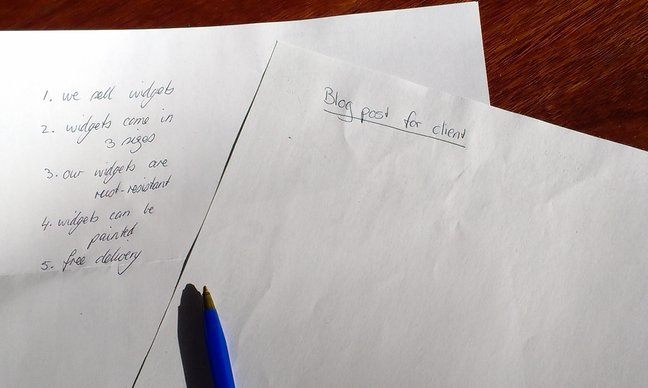I hope you find my writing and business tips and observations useful. My business and blog are dedicated to helping businesses communicate clearly and reach their potential.
Read, subscribe to my newsletter, enjoy!Tash
Giving a wealth of choice…
I often pick up surveys for errors they make – it is unfortunately a common occurrence.
Today I spotted one that used perfect grammar and made perfect sense. The question listed the following options for someone’s gender:
- male
- female
- intersex
- other (please specify)
- prefer not to say
For a question where I am used to see two possible answers (male and female), such a long list surprised me!
How much is too much?

When talking to clients, I talk about writing from their points or from scratch – I don’t list writing blog posts, webcopy, disclosure documents, annual reports and letters. Fewer options make their decision easier.
How many choices make it hard to choose?
For a question with a clear answer (like how old are you or do you live in Australia), a lot of choices can work as you can skim across the options to find the relevant response.
But at other times, a large choice can hamper people actually making a decision.
I think there is a balance between not restricting people, offering them options, and overwhelming them with choice. Especially if some of the options are going to be chosen by a very limited number of people.
In business, too many choices can result in people being indecisive and not buying.
I know it can be hard to not offer something (what if my next potential client wants exactly the thing I don’t mention?) but considering if less is more can simplify and help your customers.
[Tweet “Consider if less is more before giving customers lots of choices”]
You can always add a note somewhere to the effect of ‘if what you want isn’t listed, give us a call’.
So how many options does your business offer?
Have you considered if it is too many, or how it could be simplified?
Genuine Choices
I have just been to my ip provider’s website to lodge a complaint after 2 days of emails not arriving. Their online complaint form has many fields (too many in my opinion but I’ll let that go!) and most are marked compulsory.
One questions, marked as compulsory to answer is “Would you like ABC to contact you? Yes Email Address”
In other words I have to say yes I want you to contact me in order to submit the form! Why bother asking if I have no choice but to agree to it?
So if you are preparing any sort of form or questionnaire, make sure you give people a choice rather than pretending to give a choice. If you are not going to give them a choice about something, be honest enough to say there is no choice – anything else just makes you look foolish and/or deceitful.
Use your words and questions wisely!
Giving people a choice of contact…
Through recent conversations, the topic of contact details has come up (again!) So let me start by asking – do you prefer to be contacted by phone or email, or something else? When leaving your details for a business to contact you, do you like giving lots of details or just choosing the ones that suit?
I have explained before that I prefer getting emails than phone calls as a general rule, so maybe I am a little biased!
However, I don’t like filling in forms on websites that ask for a lot of information because it wastes my time and gives them more than I think they need to know. For example, if I am asking you to email me something, why do you need my phone number and postcode?
My favourite collection forms are those that let you fill in phone or email or whatever, or at least ask what your preferred method of contact is. And I’m pretty sure I’m not the only one who prefers a choice…
Along with choosing what contact details you give out, remember to consider what you ask for, too.
Get out of the stands
I just saw this fantastic video and felt I had to share it…
It is about leadership (relating to a Californian company, but that is not noticeable until the end) and how we can all make a difference to our world; but it is also about being a decent human being and ending each day satisfied with ourselves and our lives.
Thank you to Donna-Marie for sharing this in her blog for me to find, too.
I hope you find it as inspirational or encouraging as I did.
What’s in a name?
My daughter recently discovered that people didn’t live at the same time as dinosaurs. She was shocked and didn’t really believe it.
“But if people weren’t alive when dinosaurs were, then how can people know what they were called?” she asked.
It lead to a discussion of why we use names for things – even things that we don’t see in our everyday life. Names save us time, words and energy, as well as individualising us as people.
When writing, the choice of a name can be really important as names also set the scene. Names can give information about the person, such as gender, nationality, personality and age, and about the theme of the writing.
And it’s not just naming characters in fiction stories either. When I am writing something that includes examples, I take care to use names that imply a mix of people – for instance, using male and female names.
Word Constructions ~ for all your business writing needs


Recent Comments